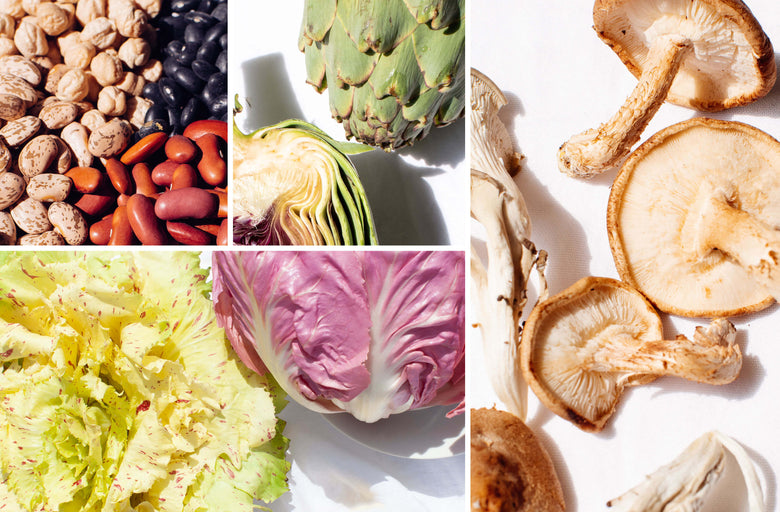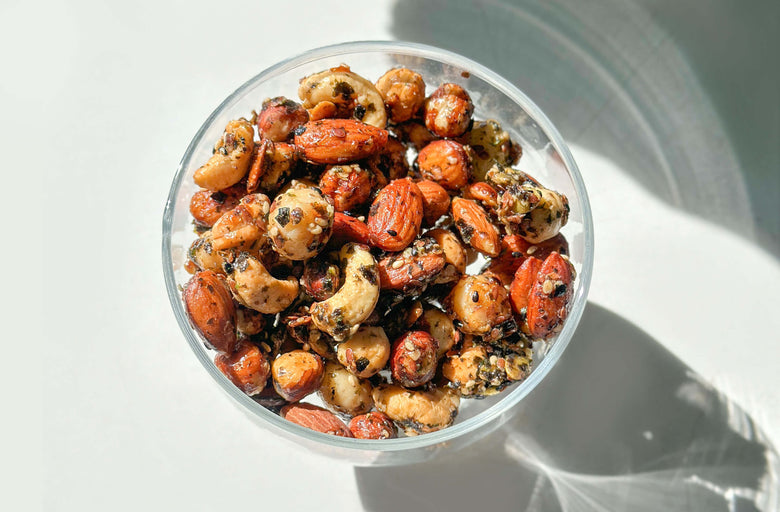According to the current prevailing wellness wisdom, inflammation is at fault for everything from acne to Alzheimer's. It's become quite the buzzword in the health space, but it's not just a fad—far from it, in fact. If you look beyond the headlines and dig into the science of inflammation, you'll begin to understand exactly what it is, how it works, the problems it may be causing you and, best of all, how to fix it.
First things first – let’s be clear that inflammation itself is not a bad thing. In fact, our bodies actually depend on it to survive. For instance, take getting stung by a bee. Almost immediately, the skin around the sting swells and becomes painful. Quick and dirty Bio 101: this is acute inflammation and it’s your natural defense system alerting your body that it’s under attack. Your body then sends ‘first responders’ (typically in the form of white blood cells) to work their magic and break down the toxins from the sting. It’s the same story after your Saturday morning SoulCycle ride. That soreness in your legs is (healthy!) muscle damage and the resulting inflammation causes proteins and chemicals to repair the damaged muscle, allowing you to come back even stronger the next week.
But what would happen if that bee were to never stop stinging you? Or if you never let your body rest in between workouts? The inflammation would never go away because your body would be in constant ‘attack’ mode. This is known as chronic inflammation and it’s what happens when your immune system is permanently switched to “on.” As a result, your body continues to pump out chemicals that damage your cells, causing serious health problems over time.
There are many factors that can trigger chronic inflammation, but one of the main culprits is food. Over 70% of your immune system lives in your gut (which is why we’re so passionate about the microbiome!), meaning that every bite of food you put into your body has a direct impact on your inflammation levels (and therefore immunity!). When you constantly irritate your gut lining with damaging foods, it wreaks havoc on your body. The main offenders likely won’t come as a surprise: sugar, dairy, gluten, alcohol, and processed/fried foods (we’re sorry, spicy margs!).
On the flip side, research has found that there are foods that will actually go to bat for our bodies and work to promote healthy gut bacteria and immune function. Plant-based foods that are rich in antioxidants and phytochemicals (think: dark leafy greens, berries and walnuts) work on a cellular level to prevent DNA damage and inflammation. Food is information, and the foods that you put into your body provide your cells with data that can either promote healing or cause imbalance.
There’s more to the story though. You can eat all the kale and goji berries in the world and still have chronic inflammation. To understand why, let’s go back to the biology for a quick second. Ten thousand years ago, one of our biggest stressors involved the potential of being attacked by a wild animal. When we were at risk of becoming a wooly mammoth’s lunch, our bodies would go into ‘fight or flight’ mode and release hormones (i.e. adrenaline, cortisol and norepinephrine) to give us the energy and strength we needed to get out of the situation. In emergency instances like this, these hormones can save our life.
Fast forward to today. We’re no longer running away from wooly mammoths, but our body is still programmed to handle stress in the same way. When we allow ourselves to stay in a constant state of stress, low levels of hormones are continuously being pumped into our bodies, leading to a chronically inflamed and toxic environment.
Now let’s be real. It’s essentially impossible to live a life sans stress or never touch a processed food this day and age, but there are certainly things we can do to help give our bodies some tools to fight inflammation on a cellular level. So, here’s a little cheat sheet with a few stress-fighting, anti-inflammatory boosting tricks.
1) Eat your veggies.
Now to clarify, we didn’t say only veggies, but when you focus your attention on eating more plants, you’ll slowly start to crave less of the other stuff (we promise!). Green leafy vegetables are among the best foods you can feed your body, and we have plenty of recipes to “green-ify” and spruce up your sad desk lunch in a delicious way. You can also try sneaking a handful of spinach or kale into your morning smoothie! Make it a goal to have veggies on your plate at every meal.
2) Create a morning ritual.
How you spend your morning sets the stage for your entire day. Doing something that makes you happy during this sacred time can help put your mind in a state that’s better equipped to fend off any stressful situations that arise. We recommend establishing a routine that involves setting intentions for the day and taking a few minutes to journal or meditate. In an 8 week clinical study, participants who established a daily meditation practice reduced levels of stress and anxiety and also reported a sense of “greater well-being” (yes, please!).
3) Breathe.
When you get that late night email from your boss or you’re caught off guard with a question during a presentation, don’t freak out. Just take one (or two, or three) deep breaths and focus on re-grounding yourself. Going into automatic stress mode won’t help you perform better (you’re not fighting off a wooly mammoth!), so just take a moment to breathe -- studies have shown it will help you think more clearly. Stanford researchers were recently able to answer WHY deep breathing has this effect thanks to a small group of neurons linked to our respiratory control center!
4) Schedule time for you.
Take our word for it - ‘self care’ is not selfish! It’s essential to your health. Make it a goal to find time every day (yes, every day!) to recharge your body in whatever way works for you. Go for a run, read a magazine, dance, take a bubble bath, paint a picture. Even if it’s just taking ten minutes to sit by yourself in silence and do absolutely nothing, we promise, your body will thank you.
5) Let yourself off the hook.
Let’s face it, we’re human. Sometimes you’re going to have a week where #1-4 on this list just aren’t happening (do fries count as veggies?!), and that is OKAY. Give yourself permission to forgive yourself. Beating yourself up about not doing everything perfectly will just create more stress, and everyday is a new opportunity to create the life you want to live.
If you’re concerned about your inflammation levels (or if you’re having symptoms like stomach issues or chronic fatigue!), we suggest you pay your doctor a visit. Through a simple blood test, your doctor can measure the level of C-reactive protein in your blood (an indicator of your body’s inflammation levels) and help you figure out what might be going on. (Interesting fact: a Harvard study actually found CRP levels to be more effective than cholesterol at predicting heart disease risk in women!)
Keep in mind, you’re living inside of an incredibly resilient body and when given half the chance, your body will heal itself. Moral of the story? Eat your broccoli and be kind to your body.
Jordan Crofton studied Biology and Nutrition Science in undergrad, and as the masterful left and right-brainer she is, works as Sakara’s Product Manager— doing all things website and tech related. Jordan is also currently enrolled in IIN’s nutrition school, where she became fascinated by the role that inflammation plays in our health, and how everything from the food on our plates to the thoughts in our brain, contribute!






